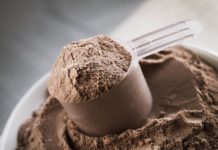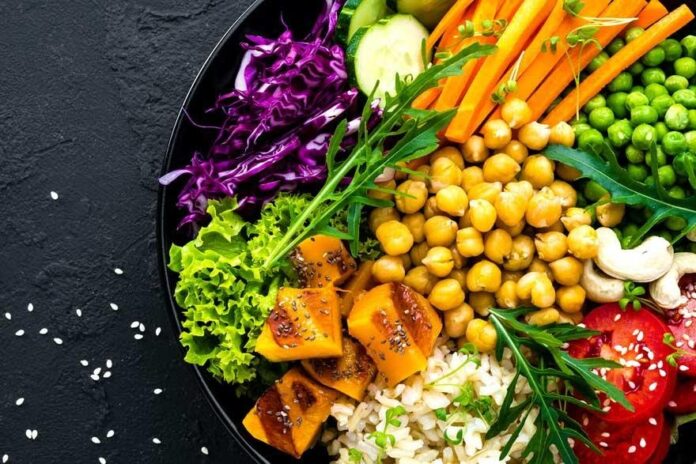
Proteins play a very important role in human health. We know that meat is one of the main sources of it and that those who train and take care of their body monitor their daily protein intake, especially after training. This way, you can increase your muscle mass and recover them after physical activity.
Recently, we hear more and more often that a person is a vegetarian or vegan, that is, that he does not consume food of animal origin. A greater percentage of active people are opting for a plant-based diet and want healthier rewards for changing their diet. Plant proteins have also gained a position on the market as an independent product, as pure protein, without chemical formulas.
Although vegetable proteins are considered incomplete, you should not give them up, it is only important that you combine them properly in your diet. Of course, there is always a simpler option, which is the purchase of almost protein powder that is consumed in combination with water or with food.
Anyway, it is recommendable because not many people are able to have a proper intake of it during the day. Plant proteins or vegan proteins are the one from plants, most often soy, hemp, rice, and other vegetables. Plant proteins are low in fat, but with a high percentage of fiber, vitamins and minerals, and contain phytochemicals with positive effects on health.
Therefore, it is only necessary to give yourself time and find out which foods are enriched with it, amino acids, minerals, carbohydrates, and so on. Of course, there are also carbs and fats necessary for your body. You can find on this site more about plant-based proteins.
What Is the Difference between Proteins of Plant and Animal Origin?
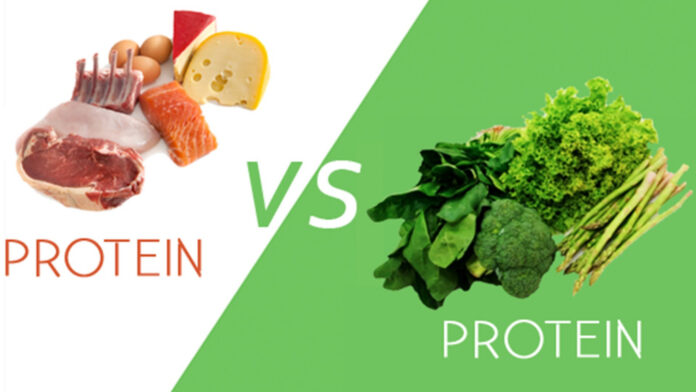
We would say that proteins of animal origin contain larger amounts of amino acids. These are natural compounds that rarely come in a free state in nature. The human body uses amino acids to build proteins that participate in cell growth, tissue healing, and can also be used as a source of energy.
The Benefits of Protein
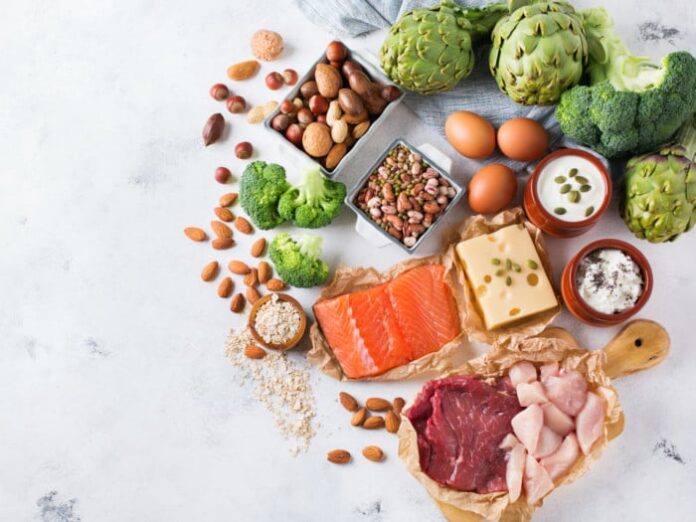
They play a key role in our body because they are the basis for the creation of muscles, hair, nails, and collagen – tissue that connects everything in our body. In addition to building the body and rebuilding tissues, proteins also help our immune system create antibodies, and they are also important for blood sugar regulation, fat metabolism, and energy production.
Animal Proteins
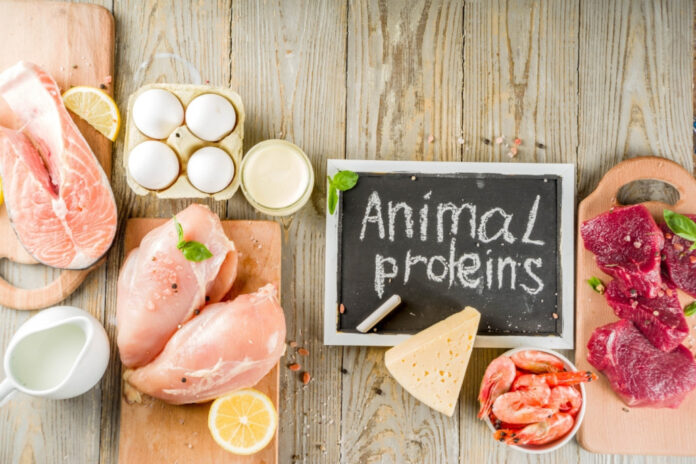
Certain studies show that proteins of animal origin are easier to digest than proteins of plant origin. In addition to meat we have already mentioned (chicken, turkey, and red meat), it is good to consume fish, eggs, and dairy products. For example, you can combine meat (protein), rice (carbs), and avocado (fats) and be sure you had a good intake of this ingredient, but still not enough for a daily intake.
Plant-Based Protein

Plant proteins are low in fat and high in fiber, vitamins, minerals and phytochemicals that affect health and disease prevention. The well-known benefits of a plant-based diet include increased protection against heart disease, reduced incidence of cancer, risk of obesity, stroke, and more. The way of life, that is, the activity of an individual has a great influence on the required daily intake of protein. Intense and regular exercise requires a higher daily protein intake.
The daily intake of protein should be divided into several meals, considering that the body is not able to use a large amount of protein at once, and it is necessary to combine both plant and animal sources of protein in the meals. So, make an effort to include a certain amount of beans, lentils, almonds, quinoa, broccoli, spinach, and other foods in your daily diet.
Benefits
Although animal proteins are more enriched with amino acids than plant proteins, there is something in which we prefer plant proteins – unlike animal proteins, foods with plant proteins are healthy because they do not contain harmful, but only healthy, fats. For good health, it is best to combine as many vegetable sources of protein as possible: legumes, tofu, cabbage, green leafy vegetables, and whole grains.
Possible Problems with a Plant-Based Diet
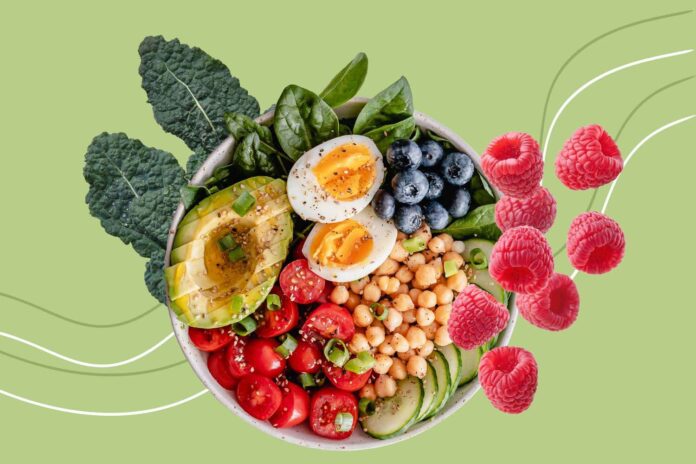
If you do not consume foods of animal origin, it is very important to consume sufficient quantities of various fruits and vegetables. A plant-based diet high in processed foods and added sugars does not provide the right or sufficient nutrients. In that case, make sure you get enough zinc, vitamin B12, protein, calcium, and vitamin D.
If you want to know 6 tips for maintaining a healthy diet during pregnancy click here.
Controversies about Protein Types
Even if animal proteins have a better quality than those of plant origin, if we analyze the content of amino acids, in recent years they have been neglected in favor of plant proteins and especially new plant foods (quinoa, hemp seeds, seeds, etc.). If we talk about vegetable protein sources, they provide useful nutrients such as fiber and unsaturated fats, and their nutritional value is much more appreciated than animal proteins, although they do not provide the ideal amount of essential amino acids.
How Much Protein Do You Really Need?
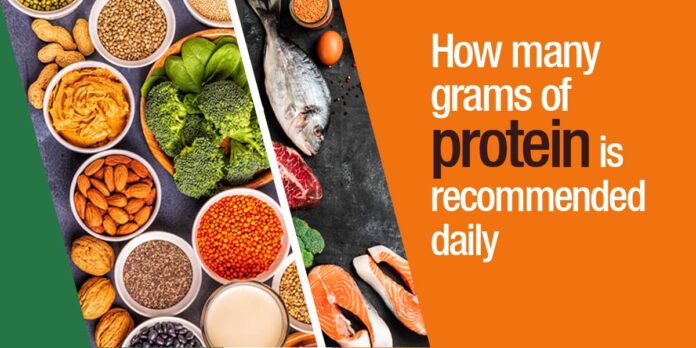
For a long time, it was thought that we need to consume large amounts of protein to be strong because muscles are mainly made of protein. But the body is like a car in this respect. Once the finished product leaves the factory, very few additional, spare parts are needed to maintain it. Similarly, a relatively small amount of protein is enough for an adult to maintain his body structure on a daily basis. Only about 45 to 65 grams per day which is less than 1 g/kg of the body weight.
Excessive Intake
You should not exaggerate anything, not even protein intake, no matter how healthy it is for your body. Excessive protein intake can have long-term adverse effects. Some of the indicators that you have exceeded your daily intake are bad breath, weight gain and belly fat, poorer kidney function, dehydration, and so on.
Final Thoughts
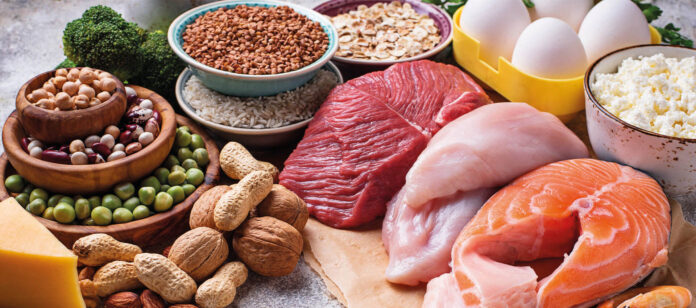
As physical activity is recommended for everyone, due to the number of benefits it has on health, both physical and psychological, it is also important to increase and adapt protein intake when starting to engage in some physical activity.
Nevertheless, you will agree that for the best effect, it is best to do everything in your hands, which is to have a proper diet, regular sleep, prescribed daily water intake, and of course, regular physical activity. Only in this way can you be sure that the results will not be absent.





